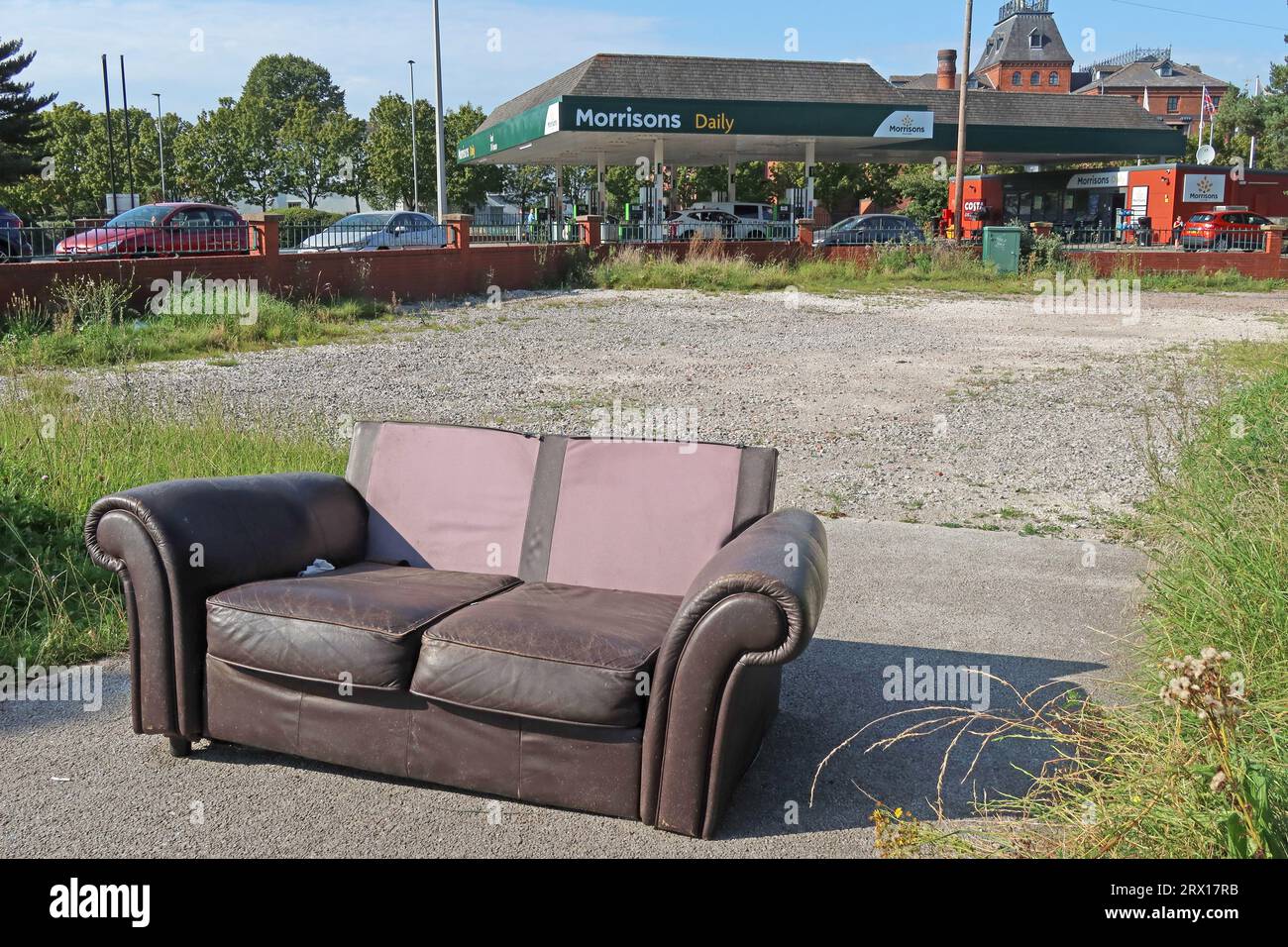Fly-tipping on waste ground, an abandoned furniture sofa, Stockton Heath, Warrington, Cheshire, England, UK, WA4 6RN

Image details
Contributor:
Tony Smith / Alamy Stock PhotoImage ID:
2RX17RBFile size:
57.1 MB (3.8 MB Compressed download)Releases:
Model - no | Property - noDo I need a release?Dimensions:
5472 x 3648 px | 46.3 x 30.9 cm | 18.2 x 12.2 inches | 300dpiDate taken:
9 September 2023Location:
Stockton Heath, Warrington, Cheshire, England, UK, WA4 6RNMore information:
Illegal dumping, also called fly dumping or fly tipping (UK), is the dumping of waste illegally instead of using an authorized method such as curbside collection or using an authorized rubbish dump. It is the illegal deposit of any waste onto land, including waste dumped or tipped on a site with no license to accept waste. Rubbish disposal in the UK is heavily regulated, with most households having on average one 240 litre bin for recyclable waste and one similar bin of non recyclable waste every week; some areas have additional similar or smaller bins for garden, food, or specific recycling waste. Any large rubbish, e.g., old furniture and mattresses, may need to be taken to the local waste depot by the home owner at their own expense, although many councils will collect certain items for free or for a small fee. This leads to some people simply leaving their waste in open public spaces or untended public gardens. This is called fly tipping. In addition, commercial or industrial users may fly-tip to avoid waste handling charges, as will unofficial and unlicensed waste disposal firms. Taxes on landfill in the UK have led to illegal waste dumping. Materials illegally disposed of can range from green waste and domestic items to abandoned cars and construction waste, much of which may be hazardous or toxic. As the cost of disposing of household rubbish and waste increases, so does the number of individuals and businesses that fly-tip, and the UK government has made it easier for members of the public to report fly-tipping. The fine or punishment is normally defined by the local council that operates in the local area in which the rubbish was dumped. According to the BBC, fly-tipping costs councils in England and Wales more than £50m annually (2016)